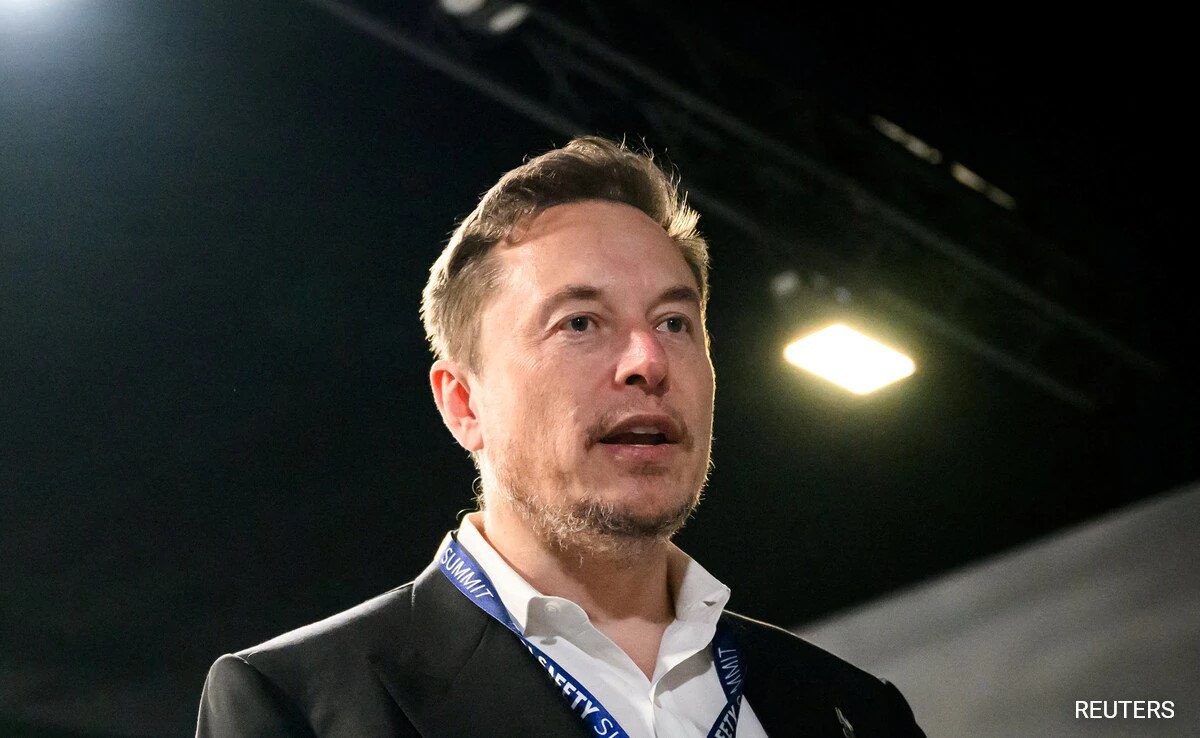New York — Tesla’s high-profile CEO Elon Musk and his significant compensation package are at the center of an imminent shareholder vote that could reshape the future of the company.
Earlier this year, a Delaware judge overturned a historic pay package worth over $50 billion that Tesla’s board had granted Musk in 2018. Now, Musk and the board are urging Tesla shareholders to reapprove these stock options and to support moving Tesla’s incorporation from Delaware to Texas.
The board has issued a clear warning: if shareholders do not approve these measures, it may be difficult to retain Musk’s focus on Tesla at a time when the company faces substantial challenges. Tesla’s stock has plunged over 50% from its peak in late 2021, with sales falling short of expectations and profit margins squeezed by a global price war in the electric vehicle (EV) market, which Tesla itself triggered.
The decisive vote will take place this Thursday at Tesla’s annual shareholders meeting. Shareholders will decide on two critical proposals: reauthorizing 303 million split-adjusted stock options, now valued at $46.9 billion, and relocating Tesla’s state of incorporation to Texas.
In 2018, 73% of shareholders approved Musk’s compensation package. However, Delaware Chancery Court Chancellor Kathaleen McCormick ruled in January that Tesla’s board had not demonstrated the fairness of the plan. She criticized the board’s process as “deeply flawed” and too aligned with Musk’s interests.
“Musk launched a self-driving process, recalibrating the speed and direction along the way as he saw fit,” McCormick stated in her ruling.
Musk and Tesla have appealed the decision and are now seeking shareholder approval to move the company’s incorporation to Texas. Delaware is a popular incorporation state due to its business-friendly legal framework, which enabled McCormick to oversee the case.
To ensure success in the upcoming vote, Tesla has taken an unusually proactive approach, filing over two dozen communications with the SEC to advocate for a “yes” vote. Additionally, Tesla has launched a lottery offering a personal tour of its Texas factory with Musk as an incentive for voting.
Tesla’s filings emphasize that retaining Musk’s compensation package is essential for keeping him focused on Tesla, given his involvement in numerous other ventures.
“This is obviously not about the money,” Tesla Chair Robyn Denholm wrote to shareholders. “Elon is one of the wealthiest people on the planet and would remain so even if Tesla were to renege on the commitment we made in 2018. Elon is not a typical executive, and Tesla is not a typical company.”
Denholm stressed the importance of motivating Musk to remain dedicated to Tesla, noting his limited time and multitude of ideas. “We want those ideas, that energy, and that time to be at Tesla, for the benefit of you, our owners. But that requires reciprocal respect.”
Musk’s increased controversy since 2018 complicates this effort. His acquisition of Twitter (now rebranded as X) for $44 billion, financed partly by selling $22.9 billion of Tesla shares, has been widely criticized. Musk’s management of X has been marked by controversial decisions, such as reinstating banned accounts and endorsing contentious content, leading to a loss of advertisers.
Tesla itself faces significant hurdles. Despite a dramatic rise in stock value from 2018 to its peak in 2021, the company has lost more than half its value since then, including a 30% decline this year. Tesla has also had to reduce prices due to weaker demand and increased competition in the EV market.
“This shareholder vote is happening at the most tenuous time for Musk,” said Dan Ives, a tech analyst with Wedbush Securities. “After Tesla went through a Cinderella ride, it’s become a horror show. There’s a group of shareholders who are frustrated. And this is a shot across the bow for them to show they’re not satisfied.”
Ives predicts the pay package will likely be approved again, but with a much narrower margin. He believes that despite the controversies, many shareholders view Musk’s involvement as vital for Tesla’s future.
Musk has indicated that he would be reluctant to push Tesla towards leadership in artificial intelligence and robotics without a compensation plan that significantly increases his stake in the company. He currently owns about 13% of Tesla, and the proposed package would boost his ownership to around 25%.
“Musk is still the heart and lungs of the Tesla growth story,” Ives said.
Some prominent shareholders, like Ron Baron, CEO of Baron Capital, which holds a significant stake in Tesla, have voiced support for Musk. Baron praised Musk’s performance under the demanding terms of the compensation plan, arguing that shareholders have greatly benefited.
Conversely, advisory firms Institutional Shareholder Services and Glass Lewis oppose the package, urging shareholders to vote against it.
“The award value was considered outsized from the start,” wrote ISS. “Some investors may find the board’s argument compelling, but the concerns raised in 2018 and since then have not been sufficiently mitigated.”
Judge McCormick, in her ruling, noted that Musk’s existing equity stake already provided substantial compensation.
Ultimately, the courts in Delaware may still have a significant role in deciding the fate of Musk’s compensation and Tesla’s incorporation, regardless of the shareholder vote’s outcome. Tesla’s attorneys have assured the court that the proposed move to Texas is not an attempt to evade jurisdiction as the case is appealed. As Tesla navigates these turbulent times, the results of this vote could have far-reaching implications for Musk’s involvement with the company and its ability to overcome current challenges.









